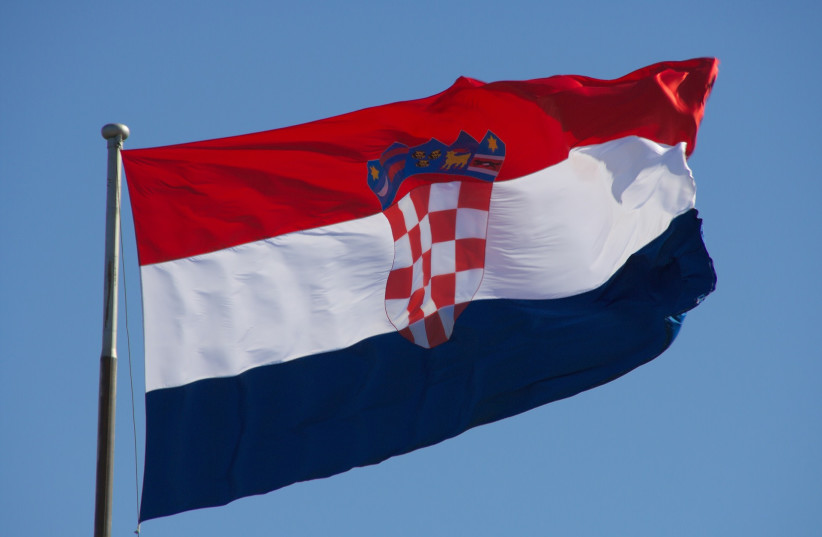This summer marks a decade since Croatia formally joined the European Union as its 28th member state. It was an enormous step for a country that had been riven by conflict in the 1990s, as Yugoslavia disintegrated into a fratricidal war and splintered apart.
Indeed, at the time of its accession to the EU, some observers expressed the hope that joining the larger European community of nations would have a sobering effect on Croatia, where a fierce nationalism rooted in World War II-era fascism remained strong.
Sadly, after nearly 10 years in the EU club, it seems that Croatia still has a great deal of soul-searching to do about the darker moments in its past, particularly regarding the Holocaust.
The latest example of this was on display last month at the European Parliament in Brussels.
The history of fascist, genocidal Croatia during the Holocaust
On March 21, Zeljana Zovko, a Croatian MEP, organized a conference titled “Blessed Aloysius Stepinac – Testimony of Faith, Perseverance and Hope,” which celebrated a rabid antisemite who hated Serbs and Roma with pernicious passion.

If there is a word to be used to describe Stepinac, it is anything but “blessed.”
He served as the archbishop of Zagreb beginning in 1938 and was an ardent supporter of the pro-Nazi puppet regime established by Ante Pavelic, leader of the Ustashe fascist and ultranationalist organization in Croatia. Not once did Stepinac ever formally denounce in public the genocide perpetrated by the Ustashe against Jews, Serbs, Roma and others, and he keenly backed the forcible conversion of more than 200,000 Serbs to Catholicism.
Revisionist historians have sought for years to rehabilitate Stepinac’s image, asserting that he helped save some Jews and privately chided Ustashe officials in letters.
But even if he did perform some commendable acts, they do not outweigh his overall record, which amounted to cooperating with an evil regime that wantonly murdered tens of thousands of Jews, hundreds of thousands of Serbs, and countless Roma and other anti-fascists.
As Dr. Efraim Zuroff of the Simon Wiesenthal Center correctly put it, Stepinac “deserves to be severely ostracized, not praised” and that “to honor or glorify persons who supported the Ustashe is a shame.”
At a time of rising antisemitism worldwide, it is simply inconceivable that the European Parliament would play host to an event honoring a cheerleader for a 20th-century fascist regime. And it is nothing less than mind-boggling that a Croatian member of the European Parliament would put in the time, effort and money to celebrate such a figure.
UNFORTUNATELY, the Stepinac conference joins a long list of disgraceful behavior on the part of some Croats who seek to rewrite history, downplay the crimes of the Ustashe, and portray Croatia as a victim rather than a perpetrator during the Holocaust.
Last year, two Croatian historians, Blanka Matkovic and Stipe Pilic, published a book about the Jasenovac concentration camp, which British historian Rory Yeomans said amounts to a bundle of “cruel distortions.”
In an article on the Balkan Transitional Justice website, Yeomans states that “the primary aim of the book’s 650 pages is to whitewash and rewrite the established history of what happened in the wartime Jasenovac concentration camp in Ustashe Croatia.”
Jasenovac, which has been called the “Auschwitz of the Balkans,” was a death camp run by the Ustashe where unspeakable acts of savagery were committed against hundreds of thousands of Jews, Serbs and Roma.
Yet for decades, Croatia has been trying to downplay its significance because it stands as glaring proof of the Ustashe’s wicked ways.
But even as they attempt to obfuscate their country’s wartime role, many Croats continue to invoke the Ustashe with a twisted sense of fondness and nostalgia.
In December, in a video that surfaced on social media, Croatia’s soccer team can be seen celebrating their advance to the World Cup semi-finals in Qatar by singing neo-fascist songs penned by a far-right Croatian nationalist.
Similarly, there was an uproar during the Australia cup soccer finals in October when a crowd of Croatian fans gave Nazi salutes, held up Ustashe signs and sang “Za Dom Spremni!” (“For the Homeland – Ready!”), which was the Ustashe equivalent of Germany’s “Sieg Hiel!”
And in still another sign that many Croats have yet to fully grasp some basic lessons of 20th-century history, the Croatian magazine Express last year published photographs of Serbian President Aleksandar Vucic, Italian Prime Minister Giorgia Meloni and Hungarian Prime Minister Viktor Orban with Hitler mustaches added to their faces under the offensive headline “Achtung Croatia between Three Mini-Fascisms.”
Besides being utterly ridiculous and insolent, the comparison with Hitler is just another form of Holocaust denial, one that insults the millions of victims of German genocide.
For far too long, Croatia has failed to take clear and demonstrative steps to confront its fascist past, preferring instead to engage in denial and deceit. And both Europe and Israel have been far too silent on this important issue, neglecting to pressure Zagreb in this regard.
But if Croatia wants to move forward, it must, at last, come to terms with its history and with the suffering that it inflicted on so many innocents.
“To forget the dead would be akin to killing them a second time.”
Elie Wiesel
As the late Nobel laureate and Holocaust survivor Elie Wiesel wrote in his classic book Night, “To forget the dead would be akin to killing them a second time.” And that is a basic moral truth that Croatia has yet to learn.
The writer served as deputy communications director under Prime Minister Benjamin Netanyahu during his first term of office and is founder and president of the Israel-Serbia Friendship Association.
